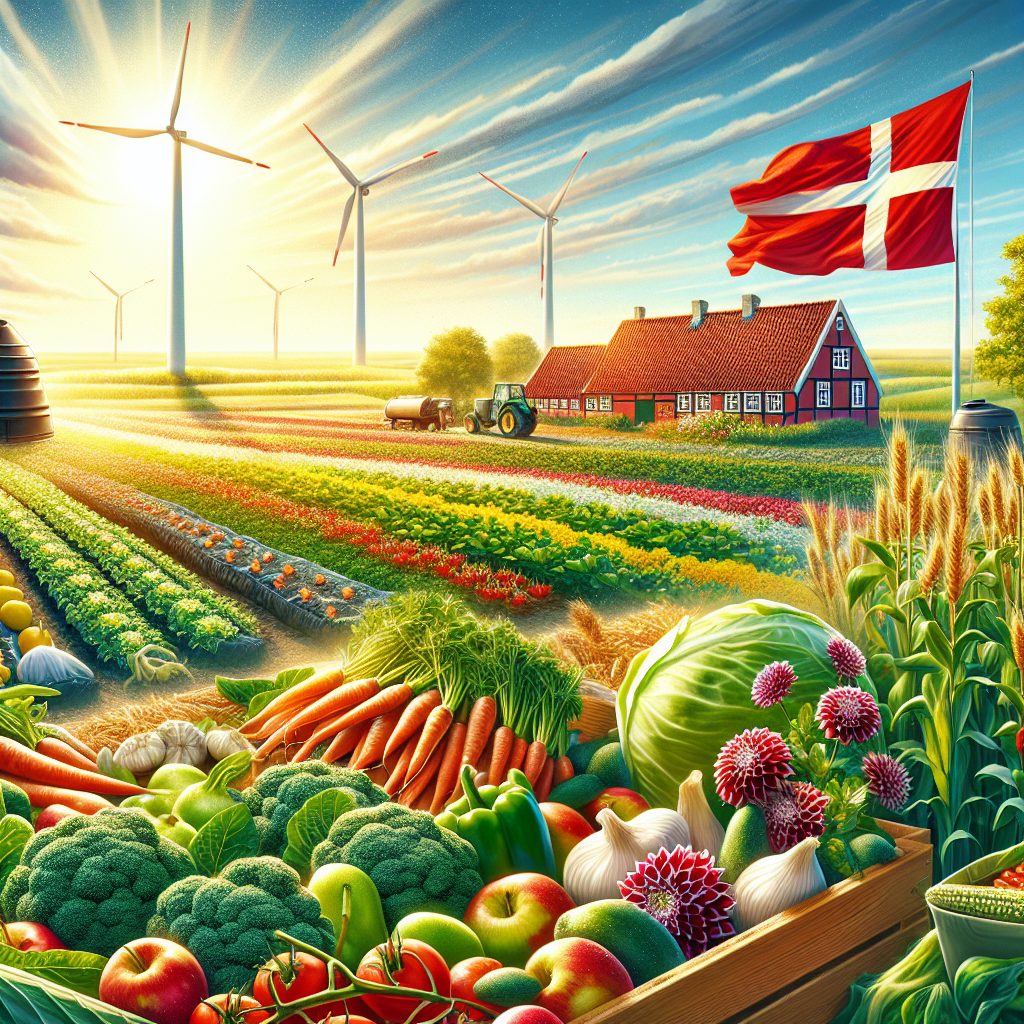The Rise of Organic Farming in Denmark
As a researcher specializing in macroeconomic policies in the Nordic countries, I have closely followed the emergence and growth of the organic farming industry in Denmark. Denmark has been a frontrunner in organic farming in recent years, with the sector experiencing steady growth and garnering international acclaim for its sustainable practices and high-quality produce.
Increasing Demand for Organic Products
Over the past two decades, there has been a significant shift in consumer preferences and attitudes towards organic food and products. Danish consumers are increasingly willing to pay a premium for organic produce, driven by concerns about health, environmental sustainability, and animal welfare. This shift in consumer behavior has resulted in a noticeable increase in demand for organic products in Denmark.
The Danish government has also played a crucial role in promoting organic farming through various initiatives and policies aimed at supporting and incentivizing organic production. This includes financial support, research funding, and the implementation of organic action plans to further the development of the industry.
Key Drivers of the Organic Farming Boom
Several factors have contributed to the rapid growth of organic farming in Denmark. These include:
- Environmental Concerns: Danish consumers and policymakers are increasingly aware of the environmental impact of traditional farming practices, such as the heavy use of pesticides and fertilizers. Organic farming, with its emphasis on sustainable and environmentally friendly practices, offers a more attractive alternative.
- Health Benefits: The perceived health benefits of organic food, such as lower pesticide residues and higher nutrient content, have driven consumer demand for organic products.
- Animal Welfare: The stringent animal welfare standards in organic farming have resonated with Danish consumers, leading to a preference for organic meat, dairy, and eggs.
Challenges and Opportunities for the Danish Organic Farming Industry
While the growth of the organic farming industry in Denmark is promising, it also faces several challenges that need to be addressed to sustain its upward trajectory.
Challenges
- Transition Period: Converting conventional farms to organic production requires a significant adjustment period, during which farmers may face financial and operational challenges.
- Market Competition: The increasing popularity of organic products has led to heightened competition among organic producers, making it essential for farmers to differentiate themselves and maintain high standards of quality and sustainability.
- Supply Chain Management: Ensuring the efficient and sustainable distribution of organic products, from farm to market, presents logistical challenges that need to be addressed to meet growing demand.
Opportunities
Despite these challenges, there are also several opportunities for the Danish organic farming industry to further its growth and success.
- Export Potential: Denmark’s reputation for high-quality organic produce presents an opportunity for increased export to international markets, where demand for organic products is on the rise.
- Collaboration and Innovation: Collaborative efforts between organic farmers, researchers, and industry stakeholders can drive innovation and sustainability in organic farming practices, furthering the industry’s growth and competitiveness.
- Educating Consumers: Continued consumer education about the benefits of organic products and the positive impact of supporting organic farming can further stimulate demand.
The Economic Impact of Organic Farming in Denmark
The organic farming industry in Denmark has not only brought about positive environmental and health benefits but has also had a significant economic impact.
Employment and Economic Growth
The growth of the organic farming sector has led to increased employment opportunities in rural areas, as well as the diversification of the agricultural industry. Furthermore, organic farming has contributed to the overall economic growth of Denmark, generating revenue from both domestic and international markets.
Sustainability and Resilience
The sustainable agricultural practices employed in organic farming contribute to the resilience of the Danish agricultural sector, mitigating the impact of climate change and environmental degradation. This resilience is vital for ensuring the long-term sustainability of the agricultural industry in Denmark.
Policy Implications and Future Outlook
The success of the Danish organic farming industry underscores the importance of continued support and investment in sustainable agricultural practices. By prioritizing organic farming initiatives and policies, the Danish government can further propel the industry’s growth and contribute to the overall sustainability of the agricultural sector.
Looking ahead, it is imperative for the Danish organic farming industry to address key challenges, capitalize on opportunities, and adapt to evolving consumer preferences and market dynamics. Collaboration among stakeholders, innovation in farming practices, and targeted policy interventions will be critical in ensuring the continued success and sustainability of organic farming in Denmark.
As a researcher with a deep understanding of macroeconomic policies, I am optimistic about the future of organic farming in Denmark and its potential to drive positive economic, environmental, and social outcomes for the country. I will continue to monitor and analyze the developments in the industry, as well as the policy implications, to provide informed insights and recommendations for the sustainable growth of the Danish economy.





